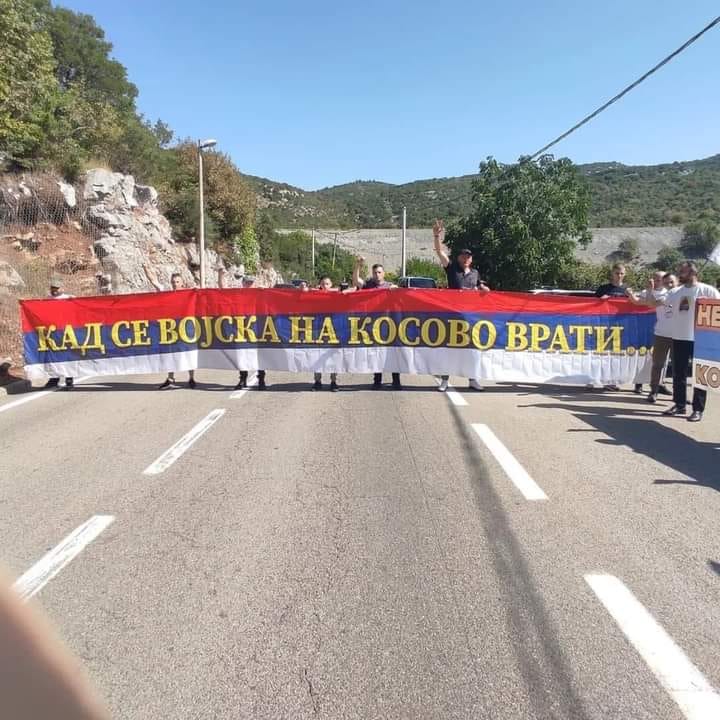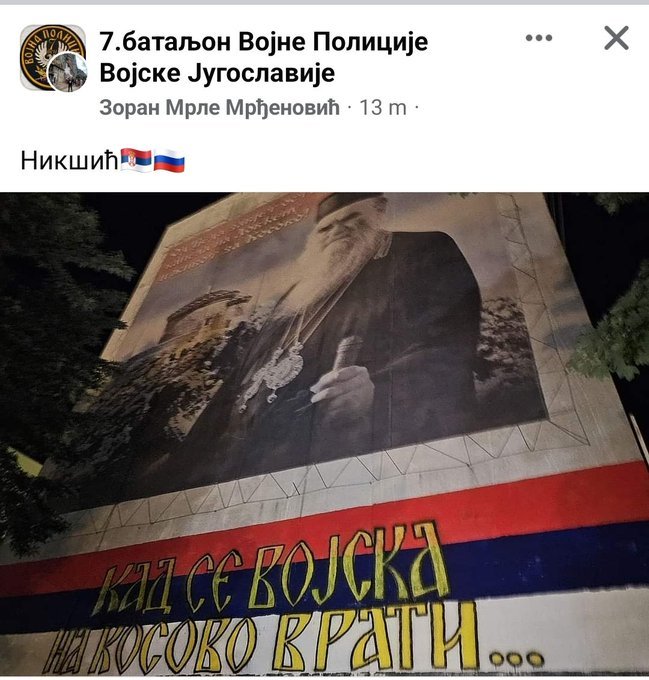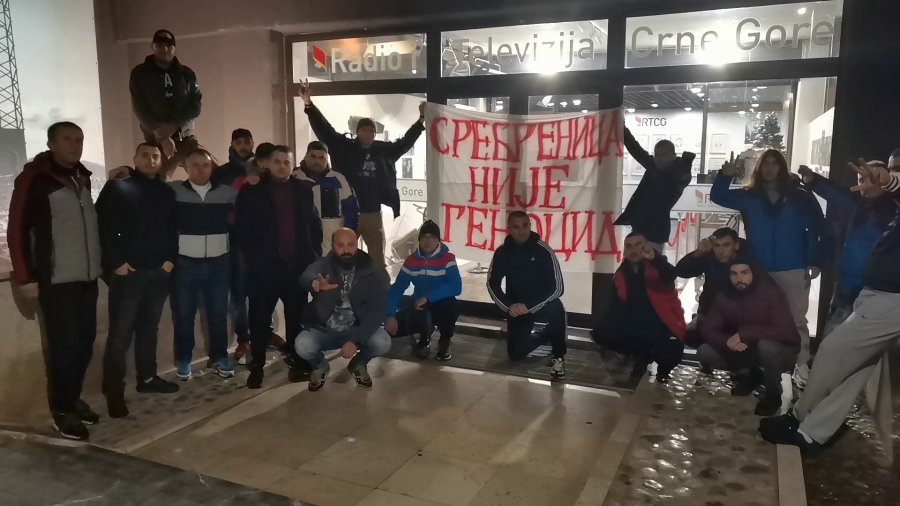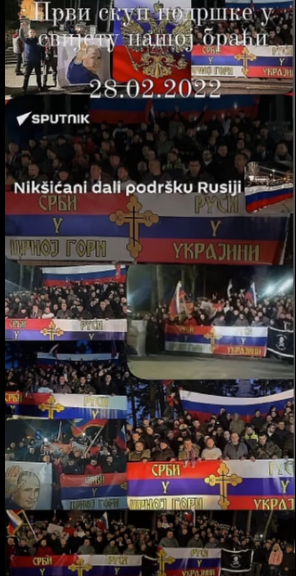On Sunday, September 8, 2024, a group of citizens organized a blockade at the Božaj border crossing between Montenegro and Albania in support of Serbs in Kosovo. Among the participants, who carried a banner reading When the army returns to Kosovo, were representatives of military veterans from the wars between 1991 and 2001, members of the 7th Battalion of the Yugoslav Army’s military police, as well as members of the Orthodox brotherhood Zavjetnici Tvrdoš Nikšić. This action can be interpreted as a continuation of the campaign from August 2023, when conflicts occurred in Kosovo, and graffiti with that slogan appeared in several cities in Montenegro, Serbia, and Russia. The same pattern of action was observed following the armed attack in northern Kosovo in September 2023, when certain nationalist circles in Montenegro created a narrative portraying the attackers as heroes and victims.

The 7th Military Police Battalion was formed in 1999 as a special-purpose unit within the 2nd Army Corps. It served the authorities in Belgrade then, specifically Milošević’s regime, for hybrid operations in Montenegro to create incidents, provocations, and conflicts.

Zavjetnici Tvrdoš Nikšić is an organization that promotes anti-Western and pro-Russian values, with visible elements of religious and national conservatism. The group describes its mission as patriotic and humanitarian but operates with imagery characteristic of right-wing factions. Its members openly support the ideology of the Chetnik movement and endorse Russia’s aggression against Ukraine. Additionally, they deny that genocide occurred in Srebrenica and do not recognize Montenegro as a sovereign state.


DFC has previously pointed out the propaganda campaigns and actions of Russian and Serbian proxies during important socio-political events. In addition to developments on the Montenegrin political scene, regional events often trigger the activation and activities of far-right organizations and individuals. In this way, during a turbulent period for the entire Western Balkan region, far-right organizations further manipulated and inflamed the atmosphere to radicalize and mobilize Montenegrin citizens who identify as Serbs.
In a regional security context, Montenegro represents fertile ground for hybrid operations. The passivity of institutions and decision-makers regarding the activities of proxy actors in Montenegro indicates that the Montenegrin government is not systematically addressing the issue of foreign influence. On the contrary, in recent periods, the problem of foreign malign influence has often been ignored or relativized by the highest authorities in the country.

